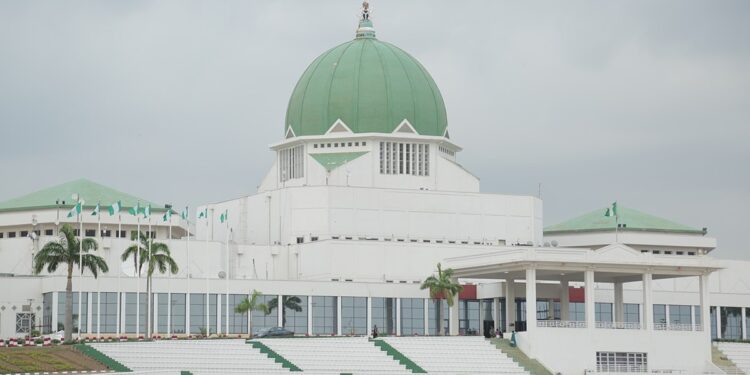The National Assembly has called for improved funding of capital projects in the 2024 budget, expressing concerns over the disproportionate allocation between recurrent and capital expenditures.
During a joint session on Wednesday, the Chairmen of the Senate and House Committees on Appropriations, Senator Solomon Adeola and Hon. Abubakar Bichi, met with the Presidential Economic Team to review the 2025 Appropriation Bill. They emphasised the need for prioritising capital project funding, stating that such projects are the primary means through which Nigerians experience the benefits of government spending.
The 2024 budget, initially set at ₦28.7 trillion, was revised to ₦35.06 trillion, with an additional ₦6.2 trillion earmarked for infrastructure and recurrent expenditures. Of this, ₦3.2 trillion was allocated to “Renewed Hope” infrastructure initiatives, while ₦3 trillion was set aside for recurrent expenditures.
However, a report presented by the Minister of Finance, Wale Edun, highlighted a significant disparity in budget implementation. While recurrent expenditure reached full execution, capital expenditure stood at only 25%, resulting in an overall budget performance rate of 43%.
Senator Adeola criticised the current 80:20 ratio of recurrent to capital expenditure and proposed a shift to a 60:40 ratio. “Capital project funding is essential for driving economic activities and completing ongoing projects under President Tinubu’s Renewed Hope Agenda,” he stated.
Adeola urged ministries, departments, and agencies (MDAs) to avoid presenting their 2025 budgets with unresolved capital projects from 2024. Similarly, Hon. Bichi pointed out that recurrent expenditure benefits a small fraction of the population, while capital projects provide essential services to the majority of Nigerians, especially in health, education, infrastructure, and energy sectors.
Finance Minister Edun acknowledged the challenges but stressed the importance of fiscal responsibility to avoid financial crises. He highlighted pending capital releases awaiting funding and reaffirmed the government’s commitment to sustainable economic practices.
Budget Minister Atiku Bagudu attributed the high recurrent expenditure to developmental challenges, including insecurity and inherited financial burdens, such as unpaid pensions. The Director General of the Budget Office, Tanimu Yakubu, echoed these concerns, suggesting future budgetary adjustments to reduce recurrent costs.
The meeting, which included other key government officials, also addressed the impact of tax holidays and waivers on revenue generation.
























